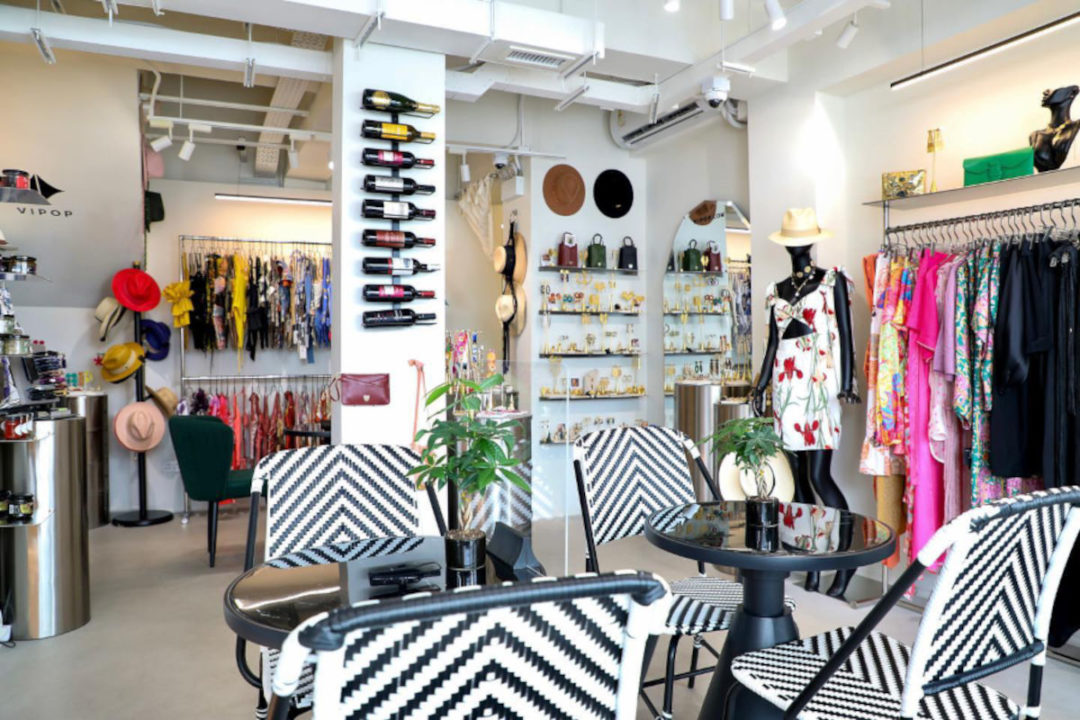In collaboration with Vipop
It’s time to make a statement on the beach with Latin American resortwear, beachwear, cocktail wear, accessories, and demi-fine jewelry from designers curated by Vipop. Vipop is a women-led curator of sustainable ateliers that is Hong Kong-based but with a vision of bringing the Latin American ethos of colour and distinctive style to all of Asia.
Vipop envisions city streets where no one is wearing the same piece, because each has been made in small batches with low environmental impact in mind.
Women-centered and women-led
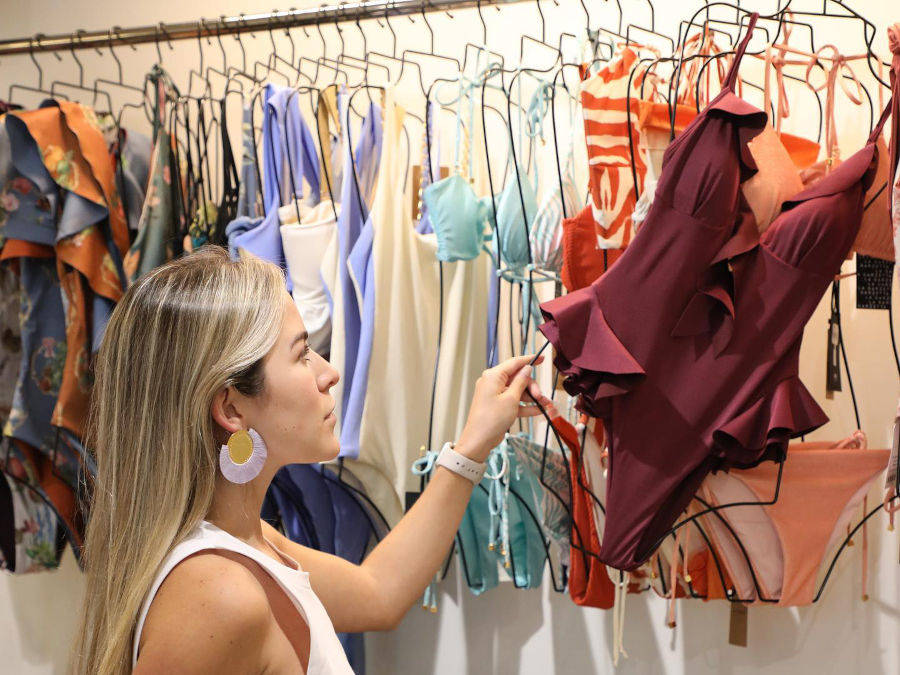
A fully female team co-founded and led by collection curators Lenia Perez and Fabiana Gonzalez, Vipop was formed around the idea of uplifting Latin American artisans whose craft are based in handmade, ancient, sustainable practices.
Each brand that Vipop works with prioritizes an eco-conscious approach, whether that means local production, zero waste processes, long-living pieces, carbon neutrality, vegan, organic, or recycled materials, or fair trade. The majority of these are women-owned ateliers that employ single mothers and indigenous peoples.
Some of these brands are well-known in the sandy paradises of Brazil and Miami but have passed under Asia’s radar.
Curating ethical Latin American resortwear and jewelry
Bright, unique statement lounging bikinis, dresses, sun hats, statement earrings, and vegan leather bags in Latino designs are chosen with the intent of looking different from anything you can find in local stores. What’s more, the pieces are classified as ‘affordable luxury’ to maximize accessibility.
All Vipop products are sourced in small batches, no more than 2-3 pieces. This often means that once a product sells out, it may never be available again.
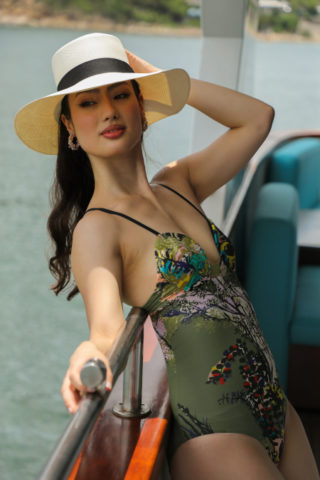
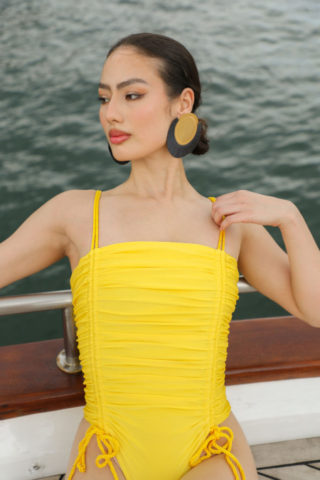
Brands are vetted to ensure they aren’t greenwashing, but actually care about using indigenous, traditional techniques that work with the earth’s natural cycles. Baobab, for example, creates swimwear from fishing nets and plastic bottles rescued from the ocean in San Andrés, Colombia. One tree is planted for every swimsuit sold and money from sales goes towards restoring the San Adrés Coral Reef.
Wanahat (“wana” meaning “weave” in QueChua, Ecuador’s indigenous language) makes coquilla straw hats, known by many as the ‘Panama hat’, from an endemic palm species found only in the Ecuadorian cloud forest. These take anywhere from two days to three months to painstakingly weave.
Vipop’s boutique combines sustainable fashion and food
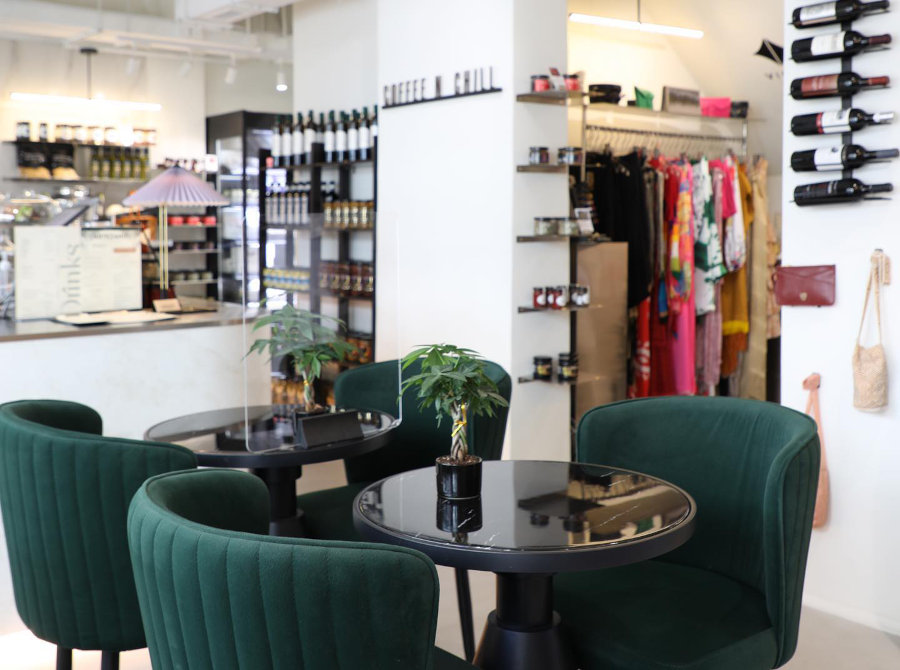
Boutique/café ARTEZANO opened in Central in March 2022 and combines sustainable fashion and sustainable food. In the cozy, sunlight-flooded space, you have Vipop’s collections on one side and an open kitchen on the other.
Head chef and Brazilian native Agnes Lessa makes seasonal dishes and daily fresh baked pastries, and visitors can browse Mediterranean and Middle Eastern grocery items from NOMINAL (who also supplies produce to Maison Libanaise) with an iced latte in hand.
The food shares many of Vipop’s values: artisanal, small batches, organic ingredients at friendly prices (you can find Lebanese and Ecuadorian wine for HK$70-HK$300 and a 1.5 litre of hand-pressed olive oil for just over HK$70).
Meet Vipop
- Website: www.vipop.com
- Email: info@vipop.com
- Address: G/F, 52-54 Graham St, SoHo, Hong Kong
Image credits: Vipop


